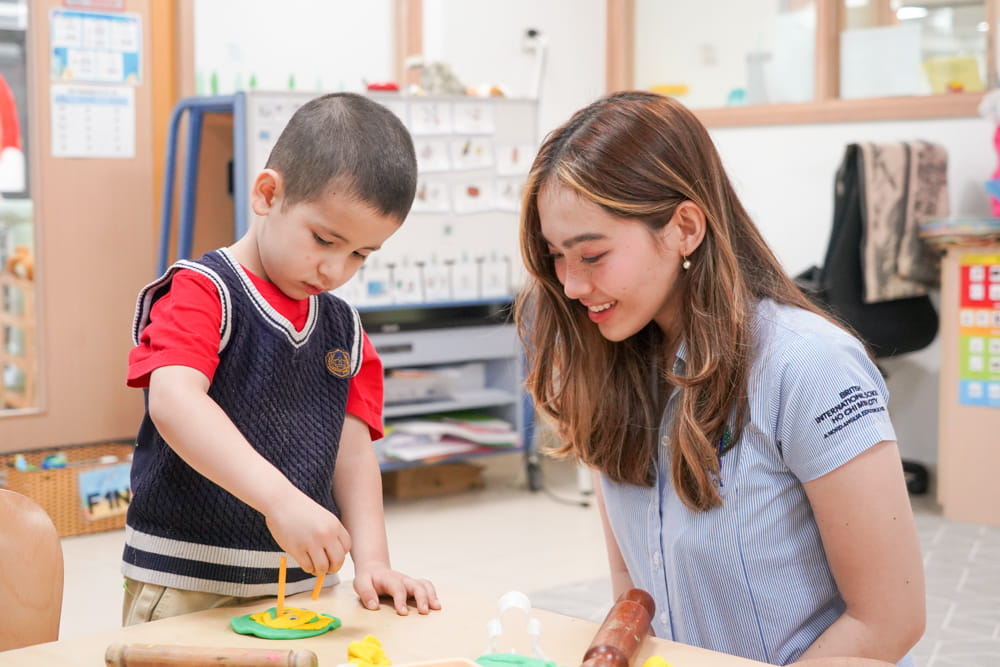Positive Psychology at BIS Top tips on how you and your family can remain resilient during times of adversity.
During this time of uncertainty, we understand it can be hard for students, as well as parents and teachers, to remain positive. Yet, staying positive is a core ingredient in the recipe of coping during adversity. Now, more than ever is the time for all members of our community to be proactive when it comes to creating moments of happiness in our every-day lives.
At the British International School Ho Chi Minh City, we follow an approach to student wellbeing that stems from positive psychology. This programme is underpinned by the work of Professor Martin Seligman’s ‘PERMA model’, a style of developing wellbeing which is built around the key elements of positive emotions; engagement; relationships; meaning and accomplishment and later extended to include health. Thus we now refer to this approach as the ‘PERMAH model’.
In this article, we explain the theory behind the PERMAH model as well as a few of its practical applications for you and your family during this time of distance learning.
P – POSITIVE EMOTION
Research suggests that positive emotions can actually help us to undo the negative effects of stress. Focusing on positive emotions is more than simply smiling: it is the ability to remain optimistic.
Thinking optimistically means that you expect things to mostly turn out well. In everyone’s lives, there are ups and downs; but being optimistic means focusing on the positives rather than the negatives. It also means that you understand that setbacks and difficult times happen to everyone but that things do get better.
Enjoyment in life comes from intellectual stimulation and creativity. For example, when your child completes a complex task that requires concentration, they might beam with joy and satisfaction from their work. These positive emotions are good for children because they help them enjoy daily tasks but importantly, it teaches them to persevere with challenges they face by remaining optimistic about eventual outcomes.
Top Tip
If your child is having a challenging day, try and offset this by reminding them of something great they accomplished. It’s important to stay hopeful and remember that bad times don’t last – things do get better.
E – Engagement
Have you ever experienced a moment when you’re so absorbed in something that you can’t believe how much time has passed? Or your child is playing with their favourite toy and you can’t get them to stop, no matter how many times you ask?
This is what we call ‘total engagement’. For most, achieving this is relatively easy as it normally involves doing something you love. However, it’s still important that we provide opportunities for our children to partake in activities that allow them to experience total engagement. This might involve playing sport together, building a Lego car or colouring. These activities provide high levels of engagement and stretch your child’s intellectual and emotional limits as well as concentration skills.
So whatever your child is interested in, make time to do more of it! The next time you see them completely absorbed, think twice before interrupting - this ‘total engagement’ is actually healthy and crucial for their wellbeing.
Top Tip
Remember it’s equally important for children to see you engaging with activities that you find enjoyable – so do more of what you love too!
R - Relationships
Connection and human interaction help us to thrive and flourish. Research has shown that strong ties are essential to a life well-lived and positive relationships are one of the strongest indicators of your satisfaction with life.
A quick chat with a friend can improve your mood, provide support and reduce stress. Therefore, it’s so important that your child maintains their friendships during this time. Perhaps it’s not possible to physically see each other but remind your child to pick up the phone, send a text or video call their friends when possible.
Remember, we are all responsible for each other. In challenging times, it’s important that we look out for each other, help each other and care for each other. Stay connected and be kind.

M – Meaning
This is a sense of connection to something bigger than ourselves. Certain activities, such as spending time with family, volunteering, or performing random acts of kindness can really improve our sense of meaning in life.
Perhaps you could encourage your son or daughter to write an email of thanks to their teacher, they could write a positive comment on their classmate’s work on Seesaw or maybe they could even help you clean up around the house or apartment! There are lots of random acts of kindness you can find online and they’ll provide another meaning to everyday life which can be hugely satisfying.
A – Achievement
Goals, no matter how small, and striving to achieve them are so important for our wellbeing. This sense of accomplishment does wonders for boosting one’s self-esteem.
As a family, sit down and make a to-do list of what you want to accomplish. This could be a family goal; maybe you aim to sit down and eat dinner together every night or they could be individual; to drink 2 litres of water every day, or do at least 15 minutes of exercise. Whatever it is, however small, write it down.
Encourage your children to develop the same attitude but remember the important part of setting a goal isn’t necessarily reaching it; it’s the effort you put in to achieve it that matters; this is how you build resilience in the face of challenges.
Top Tip
Praise your children on even the smallest tasks. Let them know how proud you are. This will increase their sense of self-belief and spur them to try harder and keep on achieving.
H – Health
Eating well, sleeping well and exercising every day will help you to feel physically, mentally and emotionally stronger. Good nutrition and enough sleep are important for brain development and improved cognitive function so make sure that your child is making healthy choices.
Top Tip
Try and make mealtimes at home screen-free for everyone and participate in 10-minute yoga sessions to relax the mind and body – there are lots of videos to follow on YouTube for all ages!
We hope this has helped you gain some ideas on how to help your family remain positive and ‘bounce back’ in these times of adversity. Nurturing these experiences in childhood can help your child go beyond ‘surviving’ to really ‘thriving’ in life.
Our dedicated Wellbeing Team is always on hand to answer your questions, so please do reach out:
Ms McWilliam: kim.mcwilliam@bisvietnam.com
Mrs Pugh: zara.pugh@bisvietnam.com
Ms An Ho: an.ho@bisvietnam.com









.jpg?h=667&iar=0&w=1000&rev=bf4cc37cb2244a9a9fe0521928afe0e9&hash=CE567187AD54C8FB6899920948A3E8E1)